The first Luojia Think Tank Forum was held jointly by Wuhan University and Guangming Daily in the Old Library on December 9th. 20 top-tier scholars and experts from academia and various industries shared their opinions about the status of China’s economy and the future reform. Under the theme of “New era, new concept and new system”, this pioneering forum was undertaken by the School of Economics and Management (SEM) and the Economy Develop Research Center (CEDR), marking a milestone for WHU’s think tank development.
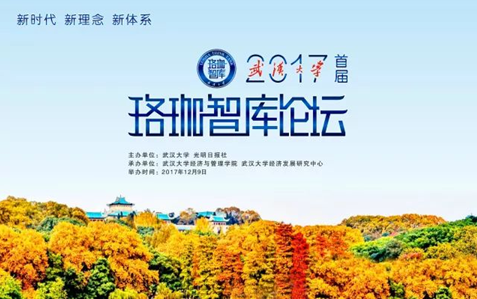
The opening ceremony was presided by Prof. Shen Zhuanghai, WHU deputy secretary of the CPC committee. President Dou Xiangkang delivered his welcome speech. He said that 2017 was the year of talent. WHU has always been devoting to talent introduction, through which WHU built a solid foundation for establishing think tanks and maintaining the university’s sustainable development. Chief editor of Guangming Daily Dr. Zhang Zheng then addressed the audience. He acknowledged the achievement of WHU Think Tank, and exchanged his ideas on how to play a part in the social development of think tanks. Mr. Tan Fangzheng from the Ministry of Education and Dr. Yin Hanning from Hubei NPC also made speeches representing the collaborative organizers.
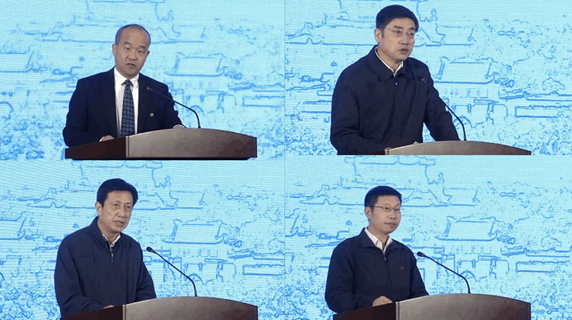
President Dou Xiankang, Dr. Zhang Zheng, Mr. Tan and Dr. Yin (from left to right, from above to below) addressed at the opening session.
The following keynote speeches were delivered by six famed experts from the State Council, the NPC, academia and industry. Professors and experts interpreted the requirements and content of the 19th National Congress of the Communist Party of China (NCCPC), and described the new environment and new challenges of the next period. They exchanged their opinions on how to establish a suitable system environment for high-quality development, green growth and ecological civilization, university think tank’s functions, investment structure and skill premium, Chinese economy modernization, and a macroscopic outlook for the economic situation in 2018. The keynote speeches section was hosted by the dean of SME Prof. Song Min.
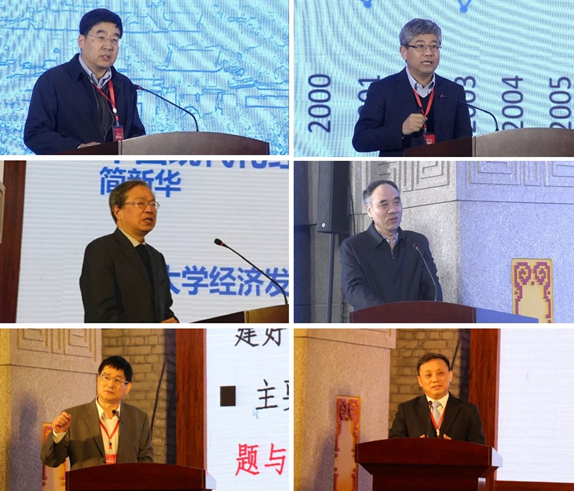
Six top-tier economists and entrepreneurs gave keynote speeches
Two roundtable dialogues were staged in the afternoon. The first conversation focused on supply-side structural reform, coordinated and balanced growth, and the following dialogue concentrated on the topics of innovation-driven development and the modern economic system. Professors from Fudan, RUC, PKU and WHU, scholars and officials from the Ministry of Agriculture, Central Bank and CCTEG exchanged their views on these topics. These two conversations were chaired by WHU Prof. Ye Chusheng and Li Zhuo from SEM.
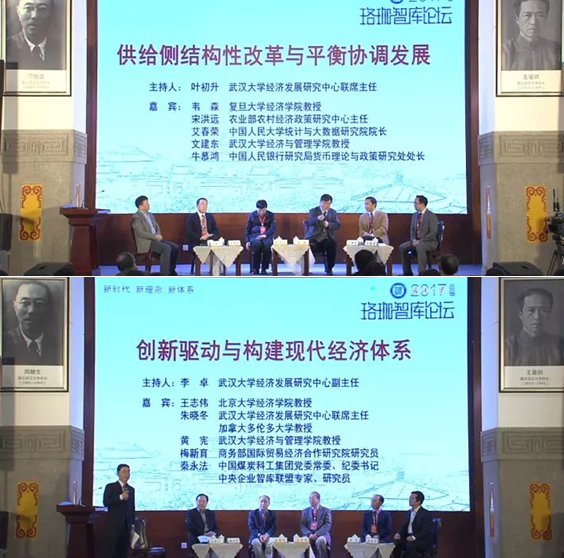
Two roundtable dialogues between scholars were held in the afternoon
It is known that Wuhan University has been elected as one of the 25 institutes to be the National High-level Think Tank on July 2017. The WHU Institute of International Law was highly acknowledged for its contribution in the South China’s Sea dispute. Actually WHU has been making efforts to cultivate high-level think tanks for a long period. Early in 2012, WHU submitted 371 research and consulting reports in humanities and social sciences to government and authorities; and with 298 acceptances, it was ranked No.1 nationally. Later in 2014, the project of establishing “WHU-style think tanks” was put forward, and Guangming Daily started to cooperate with WHU in think tank development. To date, WHU has established a think tank matrix with 2 Hubei Provincial Innovation Centers, 2 Hubei Provincial Think Tanks and 17 Key Research Bases of Humanities and Social Sciences.
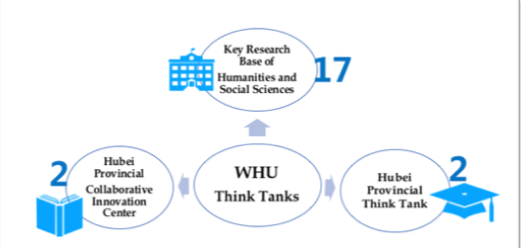
The relationship between the 21 founded think tanks of WHU
It is also reported that three Luojia Lectures were given during Dec. 8th and 9th as serial events of this forum. Prof. Tian Guoqiang, Prof. Bai Zhongen and Prof. Ai Chunrong presented lectures on their own fields, which have triggered a very positive response among students and scholars.
Photo by Gong Yu/Fei Yang
Edited by Zheng Yayun, Edmund Wai Man Lai & Hu Sijia


